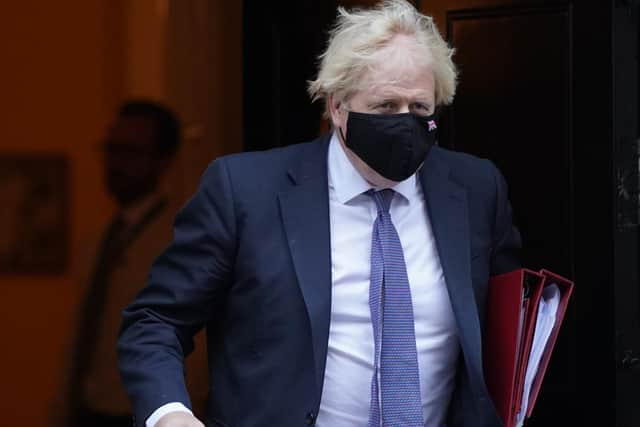Government under fire from own MPs on social care cost plans which could hit North harder
Ministers are being warned to not take the support of backbenchers in so-called Red Wall seats for granted when it comes to a vote on proposals expected today, which could mean those with lower house values could find themselves paying more for care despite a cap.
On average, house prices are a lot higher in the South East of England and London than in other parts of the country.
Advertisement
Hide AdAdvertisement
Hide AdIn September, the Government announced that an £86,000 cap on care costs would be put in place from October 2023.


It also said that people with assets up to £20,000 will not have to contribute anything to their care (up from £14,250), while those with assets to £100,000 will be eligible to receive some local authority support (up from £23,250).
But in a policy paper released on Wednesday, the Government said that for people who receive financial support for part of their care from their local authority, only the share they contribute themselves will go towards the £86,000 cap.
Sir Andrew Dilnot, who led a review into the future funding of social care a decade ago, said there is a “sort of North-South axis to this that people living in northern and other less-high house price areas are likely to be hit harder by this on average”, and according to reports yesterday, senior Tories were urging Ministers to ditch the plans or face the possibility of having to u-turn.
Advertisement
Hide AdAdvertisement
Hide AdOne Red Wall Conservative has already said he is “not particularly happy” with the plans, alongside former Justice Minister Robert Buckland, who has suggested that he will rebel and vote against Ministers.
Christian Wakeford, who was elected to represent Bury South in 2019 alongside a raft of other Conservatives across the north of England shared his discomfort at the impact the plans would have on “our least-well off voters”.
“When we were talking about the tax increase, the levy introduction, whichever term you want to refer to it as, we borrowed a lot of money because of Covid, the NHS is in very stark contrast to where it was pre-pandemic. So I wasn’t necessarily against an increase.
“What I wanted to see was a plan and it feels like we didn’t have one then, I’m not fully sure we’ve got one now, but then to change, to move the goalposts after we’ve already been introduced this, it’s not something I’m particularly comfortable with it.
Advertisement
Hide AdAdvertisement
Hide Ad“Especially when one of the main messages for introducing this levy was, you won’t need to sell your house for care, to get to a point where unfortunately you might need to and (it’s) arguably our least well-off in society, our least well-off voters, again it’s not something I’m particularly comfortable with.”
Analysis from Labour suggests that the average homeowner in two-thirds of northern areas will have to pay more towards their care.
Health Secretary Sajid Javid promised “everyone will be better off” under the plans.
“What our plans mean, taken together, is that everyone, everyone – doesn’t matter where they live in the country – will be better off under the new proposals that we set out, versus the current system,” he said.
